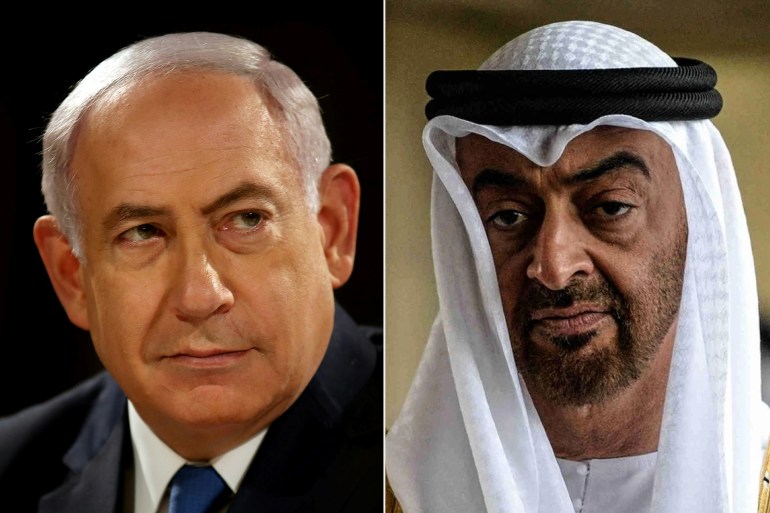The agreement to normalize relations between the UAE and Israel opens the door wide for Israeli companies to operate on Iran's doorstep, but despite this, it likely did not lead to significant damage to Emirati-Iranian economic ties.
According to analysts, the move could lead to direct economic competition between Iranian and Israeli merchants in the wealthy Gulf state, or even create opportunities for joint business with a focus on economic benefits rather than politics.
It will take some time before Iranians in the UAE find themselves face to face with the Israelis, Censia Bianco, a researcher specializing in Middle East affairs at the European Council's Institute for Foreign Relations, told AFP.
She added, "It is important to emphasize here that most of the Iranians who have close ties with Iran have either been expelled or deported in recent years."
She said, "Those who remained in Dubai or the UAE in general are very pragmatic businessmen who refuse to engage in politics, so some of them see this agreement as an opportunity, not a challenge."
The UAE is the first Gulf state to establish public relations with Israel, in an agreement that came amid escalating tensions with Iran, which its neighbors accused of destabilizing the region.
Abu Dhabi accuses Tehran of occupying 3 Emirati islands since 1971, and in 2016 it reduced relations with Iran in light of the intensification of regional competition between Saudi Arabia - the ally of the Emirates - and Iran, which is targeted by severe and painful US economic sanctions.
Despite the tension between the UAE and Iran, which is located only 70 km away at the strategic Strait of Hormuz, the two countries have maintained diplomatic channels and have strengthened historical economic relations that generate billions of dollars annually for both sides.
Trapping the tension
And Ellen R., father of a researcher at the Atlantic Council Institute's Global Energy Center, believes that Tehran is not in a position to abandon its economic ties with any country, especially the neighboring UAE.
She told Agence France-Presse that "Iran also has close relations with countries like China that deal with Israel."
Two days after US President Donald Trump's sudden announcement of the agreement, Iranian President Hassan Rouhani warned the UAE not to open the gates of the region to enter the Zionist entity.
Abu Dhabi summoned the Iranian charge d'affaires to protest the "threats", but again stressed the next day that the agreement was not directed at Iran, but tension suddenly escalated in the strategic Strait of Hormuz, prompting the two countries to rush to contain it.
On Thursday, Iran announced that it had detained an Emirati ship, and summoned the Emirati Chargé d'Affairs after the killing of two of its fishermen in a shooting accident, before its Ministry of Foreign Affairs confirmed that the UAE government announced its willingness to compensate for any damage caused by the accident.
The value of trade exchange between the UAE and Iran is estimated at billions of dollars, while Dubai is historically a center for Iranian foreign business.
The value of the exchange between the two oil-producing countries reached 8.3 billion dollars last year, according to official Emirati statistics, compared to 15.2 billion dollars in 2018, before the US sanctions reached their climax in May 2019.
Iranian businessmen and companies complain that these sanctions sometimes lead to the suspension of their bank accounts, but are unable to stop the flow of cell phones, cars, frozen meat, clothes and other goods between the two countries continuously.
Iranians in the Emirates
More than 8,000 Iranian companies and 6,000 Iranian merchants operate across the Emirates, making them more likely to engage with the expected wave of Israeli traders and investors.
"The Iranians in the UAE are not in a position to complain about the relationship between Israel and the UAE, but there are few indications that the average Iranian will be upset about this," said Ellen.
"We must remember that before 1979, there was a relationship of cooperation between Iran and Israel," she added.
Besides the deep economic ties with Iran, the UAE is also home to tens of thousands of Iranians who own hundreds of properties and have invested heavily in the country's infrastructure since its unification in 1971.
The Emirati media estimate the number of Iranian expatriates in the tens of thousands, while Iranian officials say that the number is close to half a million, and about 350,000 Iranians visit the UAE annually, and many Emirati families have their origins in Iran, and some of their members in the government work in prominent positions, including ministers .

